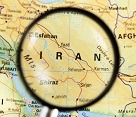Peace in the South Caucasus, particularly between Azerbaijan and Armenia, represents an unprecedented opportunity to establish security, promote economic growth, and revive the cultural identity of the people in the region. Due to its sensitive geopolitical position, abundant natural resources, and vital transit routes, the South Caucasus has always been a center of regional and international competition. Over the past two decades, Azerbaijan has strengthened its position in the South Caucasus through investments in energy resources, the development of transportation and transit infrastructure, and the establishment of extensive diplomatic relations. Stability and security in the country not only reduce border and military threats but also facilitate foreign investment, the development of industrial projects, and the expansion of oil and gas exports. Transit routes and energy pipelines from the Caspian Sea to Europe are fundamental pillars of Azerbaijan’s economic independence, and any instability or foreign intervention can jeopardize these foundations.
The people of Southern Azerbaijan, who live in Iran and share language, culture, and history with the people of the South Caucasus, directly benefit from stability and development in the region. Economic, security, and social progress in the South Caucasus can provide the people of the south with motivation and support to preserve and strengthen their cultural identity, mother tongue, and participation in cross-border economic and cultural activities. This cultural and economic connection between the south and the South Caucasus is part of the historical and collective identity of Azerbaijanis, and strengthening it enhances the welfare, identity, and social freedom of the southern population. However, the Islamic Republic of Iran, concerned about the growing ethnic and cultural identity of Azerbaijanis and the potential loss of its influence, complicates and restricts the process of peace and development in the South Caucasus. Iran’s concerns are not about regional security or economic development but about controlling the identity and political autonomy of the Azerbaijani community within its borders.
One of the most prominent aspects of these policies is the discriminatory and Turkophobic approach of the Iranian government toward the people of Southern Azerbaijan. For years, the mother tongue, culture, and ethnic identity of the southern population have been under pressure. Restrictions on Turkish-language education, suppression of cultural and social activities, media control, and obstacles to cross-border communications are clear examples of these discriminatory policies. These measures not only violate basic human rights but also attempt to sever cultural and economic ties between the southern population and the South Caucasus. Iran’s Turkophobic policies have caused the people of Southern Azerbaijan to feel deprived, treated unjustly, and restricted in their identity, while the people of the South Caucasus, under peace and development, enjoy greater opportunities for cultural and economic growth.
Historical experience shows that any Iranian intervention in the South Caucasus and its internal discriminatory policies have been aimed not at ensuring security or national interest but at maintaining dominance and controlling identity. Through political pressure, security threats, obstruction of economic projects, and the prevention of cross-border interactions, Iran delays regional peace processes and hampers economic and social development in the south. These interventions reduce trust between neighboring countries, complicate regional relations, and restrict developmental opportunities, placing the people of Southern Azerbaijan under cultural, ethnic, and economic pressure.
The impact of Iran’s policies on the daily life of the southern population is profound. Limitations on mother-tongue education deprive the younger generation of a connection to their culture and history. The suppression of cultural and social activities, the prevention of independent associations and organizations, media restrictions, and the obstruction of cultural exchange with the South Caucasus all reflect Iran’s discriminatory and Turkophobic stance, which directly threatens the identity and culture of the southern people. These policies not only create internal injustice but also limit the southern population’s access to the economic and cultural progress of the South Caucasus.
Regional economic development is also directly affected by Iranian interventions. Any restrictive policies by Tehran regarding energy transit routes and economic projects in the South Caucasus reduce investment, slow infrastructure development, and limit trade between countries. These restrictions threaten not only the economy of the South Caucasus but also the economic opportunities of the southern population. In essence, Iran’s policies are not defensive actions but efforts to control and limit the people, preventing cultural and economic growth.
Peace in the South Caucasus, if pursued without restrictive and discriminatory interventions, can pave a clearer path for development, welfare, and the revival of cultural identity for both the South Caucasus and Southern Azerbaijan. This peace could allow the people of the south to maintain their language and culture freely, participate in economic and social activities, and benefit from investment and development opportunities.
The world and international community must recognize Iran’s interventions as destabilizing and discriminatory, and support the rights of the people of Southern Azerbaijan and genuine peace in the South Caucasus. Only through respect for the ethnic, cultural, and economic rights of the people can real stability and progress be observed, and a sustainable and peaceful development path be ensured. The future of the South Caucasus and the lives of the people of Southern Azerbaijan depend on the region and the international community’s ability to confront Iran’s Turkophobic and controlling policies, and only in such an environment can a clear horizon for economic, cultural, and security development emerge.


